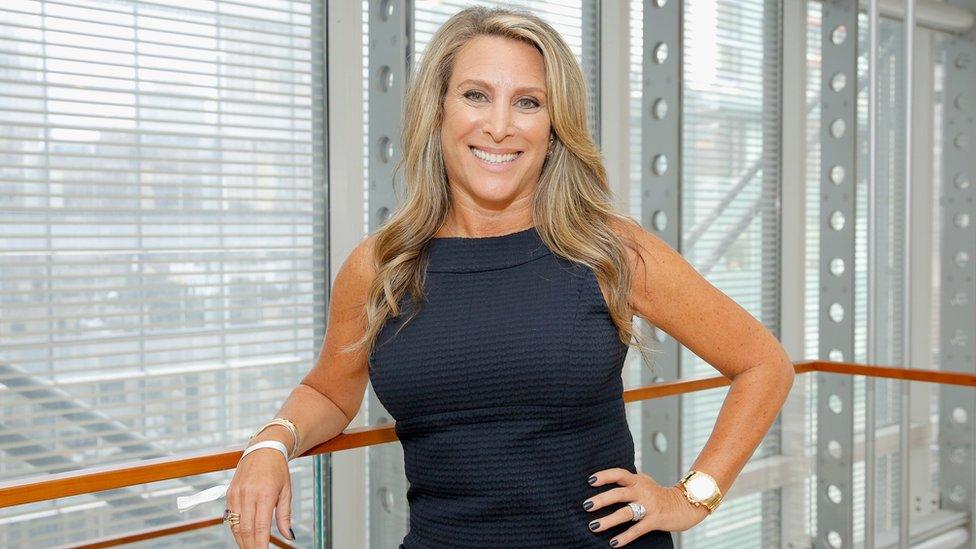Vodafone to recruit women on career breaks
- Published

Vodafone says it will actively recruit women on career breaks, many of whom have left their jobs to have children.
The telecoms giant says it wants to boost its proportion of female staff.
About 10% of its new management hires will be women who have taken a break from work, perhaps to start a family.
Women face challenges when coming back to work including a "pay penalty", according to think tank the Resolution Foundation.
"We do have a gender imbalance which we are working very hard on," Vodafone's chief executive Vittorio Colao told the BBC.
"We need to do it because these are very talented individuals, but also this is an amazing way to get to more equality in the company."
In the 2015-16 financial year, just 24% of senior management at Vodafone were women.
It has committed to make its workforce more balanced, ensuring women hold at least 30% of senior roles.

The company will also give hiring managers "unconscious bias training".
"There are women who think that if they lose their career momentum it cannot be recovered," said Mr Calao. "This is a waste for society. It's unjust for them."
In a pilot of the scheme, Mr Calao said they had found women "who thought there was no opportunity for them because after a two or three year break, maybe after a baby, they would not be sought after because their competencies were obsolete or not right."
Fiona Packman, a partner at the executive headhunters Egon Zehnder, said women who return to work after having a child faced many hurdles.
"They face a lot of challenges. Not all organisations, both public and private sector, have been very adept at how they help those women overcome those challenges."
Recent research from the Resolution Foundation found women who leave work to have children faced a severe "pay penalty" when they returned to work.
It said women born between 1981 and 2000 can expect to be paid 9% less than men when they hit their 30th birthday.
Challenged on this, the Vodafone chief executive said "there shouldn't be a pay deferential for the same job and the same position".
The government-backed Davies review wants 33% of all board seats at Britain's 100 biggest publicly-listed companies to be held by women by 2020.
In June 2016, women held 26% of such boardroom roles, according to the review.
- Published22 February 2017

- Published17 January 2017
